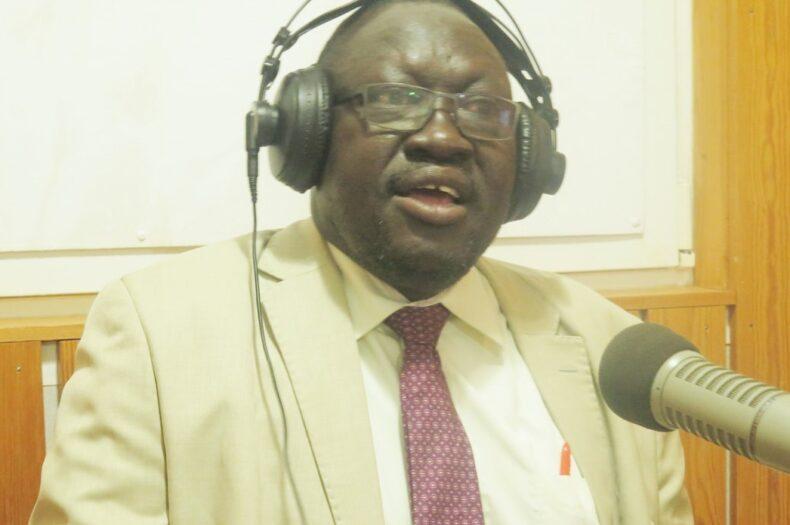Africa-Press – South-Sudan. The Governor of the Central Bank of South Sudan, Moses Makur Deng, has said that excessive taxation and many roadblocks along the highways are the major contributors to ballooning prices of commodities and inflation.
Speaking during his first encounter with the media after assuming the office, Makur revealed that when the dollar rate drops, prices of commodities should also drop. He added that the contrary has been the case because of the multiple taxes and illegal roadblocks that force traders to maintain higher prices to recoup their money.
“In our equation, the exchange rate of the dollar constitutes a 57 per cent increase in the exchange rate [that] will lead to a change of 57 per cent in prices. That means if the rate of the dollar comes down, the prices should come down by 57 per cent also and vice vasa. That means the other 53 per cent of the increase in prices is not determined by the dollar,” Makur said.
“Multiple taxations, roadblocks and all other things will constitute 33 per cent. So, even if the dollar falls and all other factors remain unchanged, you can expect sticky prices.[The prices] will not come down the same way [dollar drops] because there are other factors that are not touched. This is why the dollar can come down [but] prices remain high.”
Multiple checkpoints
In South Sudan, traders, contractors, and non-governmental organisations (NGOs) operating have to part with a huge amount of money levied on the countless roadblocks spread out countrywide.
According to a recent research study by the International Peace Information Service and the Danish Institute for International Studies, the government controls the majority of roadblocks while SPLM/A-IO controls a third of the checkpoints along the River Nile.
The study places the youngest African country among the countries with the most expensive transportation costs. It states that South Sudan is only rivalled by Afghanistan and the Democratic Republic of Congo, and the impacts are felt by vulnerable citizens in terms of buying goods.
It further indicated that, based on the averages, a typical checkpoint in the country is manned by six people who charge an average of SSP 48,000 ($100). However, as vehicles typically travel long distances, the total checkpoint tax for a trip can be enormous.
“Barges typically shuttle between Bor and Renk carrying humanitarian aid or foodstuffs, and for the entire return journey, each barge will pay about $211 at each of the 33 checkpoints, totalling a stunning $10,000 for a round trip,” the report partly states.
Last month, drivers operating along the Juba-Mundri Highway raised concerns over unlawful and forceful taxation levied on owners of goods at every illegal roadblock.
Matayos Kenneth, a driver who ferries passengers along the Juba-Mundri road, revealed that there are more than eight checkpoints along the highway and drivers are forced to pay at least at each checkpoint.
“It is the reason why we are not reducing transport fares. You cannot pass any of these checkpoints without paying cash. Of course, the money we are charging the customers is too much. We understand, but we cannot also manage to operate on nothing. If so, then most of us are not going to operate, ” Kenneth complained.
Makur, on the other hand, believes that the government institutions directly responsible for the factors should take drastic measures to prevent multiple taxations and roadblocks.
He said his institution alone could not address the high market prices in the country.
“These factors are not the responsibility of the Central Bank of South Sudan for that matter. So [the Central Bank] cannot control it unless the other agencies of the government that are responsible for the control of this work very well and bring it to zero. This is where the decrease in dollar rate will be reflected fully in the prices,’ Makur stressed.
For More News And Analysis About South-Sudan Follow Africa-Press






